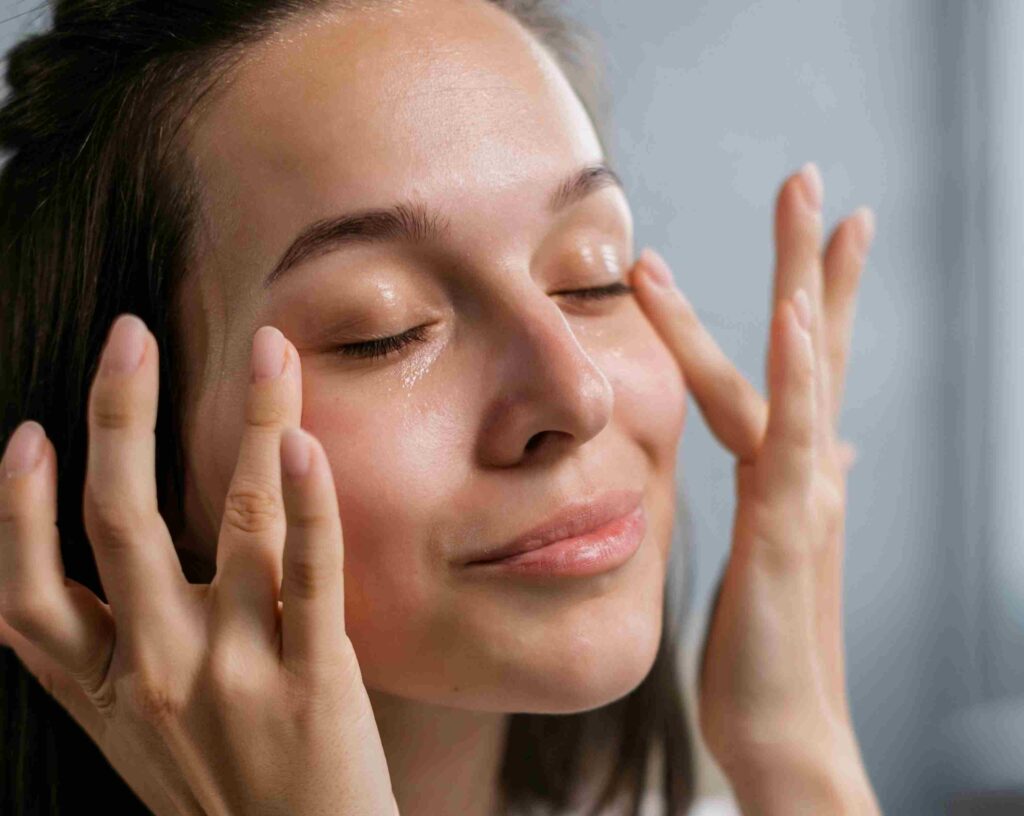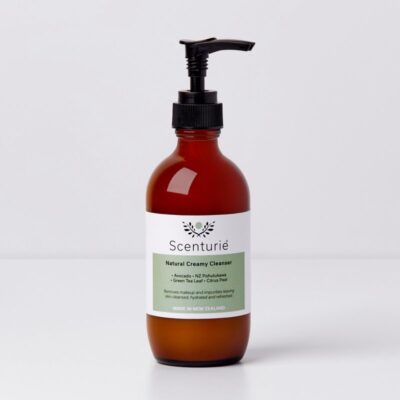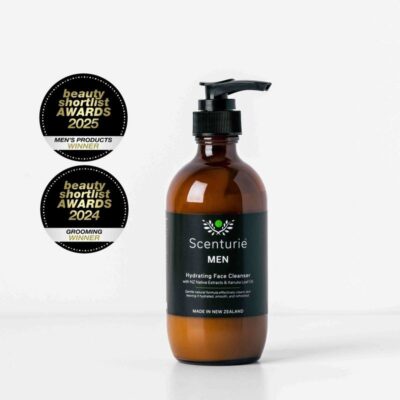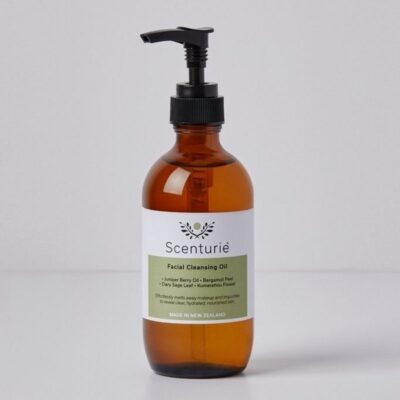Cream Cleanser vs Oil Cleanser: Which is best for your skin?
Does Your Face Feel Tight, Dry, or Still Oily After You Wash It? You Might Be Using the Wrong Cleanser.
You wash your face every single day. So why does it still feel… wrong?
Maybe it’s that tight, squeaky feeling you get right after you rinse—the one you thought meant “clean,” but is quickly followed by dryness, irritation, or an oily rebound by lunchtime.
Or maybe it’s the opposite. You use a “gentle” cleanser, but your skin never feels truly clean. Your makeup isn’t fully gone, your pores feel congested, and you’re left with a film you just can’t seem to rinse away.
You’ve tried the foaming washes that strip your skin and the milky lotions that don’t seem to do anything. It’s a frustrating cycle, and you’re starting to wonder if your cleanser is actually part of the problem.
It probably is
The Great Cleanser Misconception (And Why Your Skin is Paying the Price)
For decades, we were taught that “squeaky clean” was the goal. But that feeling is actually the sound of your skin’s protective barrier being stripped away.
Your skin has a natural barrier made of oils (lipids) that locks in moisture and keeps irritants out. The culprits that damage it are often harsh chemicals like Sodium Lauryl Sulfate (SLS), synthetic fragrances, and drying alcohols. They’re cheap, they foam a lot, and they give the illusion of clean, but in reality, they are waging a war on your skin.
A modern, natural approach is the opposite. It uses intelligent, plant-derived ingredients that respect your skin’s biology and work with it, not against it.
So, Cream or Oil? Here’s How to Finally Choose the Right One for You.
The choice is simple once you know what job you’re hiring your cleanser to do.
You Should Choose an Oil Cleanser If…
You wear makeup or sunscreen every day (especially waterproof).
Your skin is oily or acne-prone, and you struggle with blackheads and congestion.
Your skin feels “congested” and looks dull.
You want a deep, satisfying cleanse that feels like a spa treatment.
How it works: The principle is “like dissolves like.” A cleansing oil masterfully bonds with and dissolves oil-based impurities—including excess sebum, makeup, and sunscreen. It cleans inside your pores, not just on the surface. When you add water, it emulsifies into a light milk and rinses away completely, taking all the grime with it.
Our Facial Cleansing Oil is a lightweight, non-comedogenic formula powered by nutrient-rich botanicals like Grape Seed and Apricot Kernel Oil.
You Should Choose a Cream Cleanser If…
Your skin feels tight, red, or irritated after cleansing.
You have sensitive, mature, or naturally dry skin that needs gentle care.
You rarely wear heavy makeup and want a gentle, hydrating daily wash.
You love a soft, lotion-like texture.
How it works: A cream cleanser is a water-based emulsion that uses gentle, natural surfactants and nourishing oils to lift away light impurities while depositing hydration. It’s designed to cleanse while actively soothing and moisturising.
Our Natural Creamy Cleanser is a pH-balanced, sulfate-free formula that uses nourishing plant oils and the soothing essence of Lime and Mandarin to respect the most delicate skin. For men, or anyone who enjoys a refreshing, woody scent, our award-winning Men’s Hydrating Face Cleanser is another excellent creamy option that cleanses, soothes, and even doubles as a shave cream.
-
Natural Creamy Cleanser
$52.99Select options This product has multiple variants. The options may be chosen on the product pageRated 5.00 out of 5 -
Men’s Hydrating Face Cleanser
$52.99Select options This product has multiple variants. The options may be chosen on the product pageRated 5.00 out of 5 -
Facial Cleansing Oil
$52.99Select options This product has multiple variants. The options may be chosen on the product pageRated 4.92 out of 5
Frequently Asked Questions
Q: What is “double cleansing” and do I need to do it? A: Double cleansing is a two-step process where you first use an oil cleanser to dissolve and melt away makeup, SPF, and sebum, and then follow up with a gentle cream cleanser to wash the skin itself. It’s not necessary for everyone, but it’s a fantastic method for those who wear heavy makeup or have very congested skin.
Q: Will an oil cleanser make my oily skin even oilier? A: No, it’s a common myth! A well-formulated oil cleanser actually helps to balance your skin. It dissolves the excess “bad” oil clogging your pores without stripping your skin’s natural moisture. This prevents your skin from panicking and producing even more oil to compensate.
Q: Do I need to cleanse in the morning? A: Yes, a gentle cleanse in the morning is a great idea. It removes any sweat and skincare from the night before, creating a fresh canvas for your daytime products. A gentle cream cleanser is often the perfect choice for a soft, hydrating morning cleanse.
The Bottom Line: Listen to Your Skin
Choosing the right cleanser is a game-changer. It’s the difference between fighting your skin with harsh chemicals and partnering with it using intelligent, natural ingredients.
Whether it’s the deep-dissolving power of an oil or the gentle, hydrating touch of a cream, the right choice will leave your skin feeling balanced, comfortable, and truly clean.
Ready to find your perfect cleansing match?
Cream Cleanser vs Oil Cleanser: Which is best for your skin? Read More »







